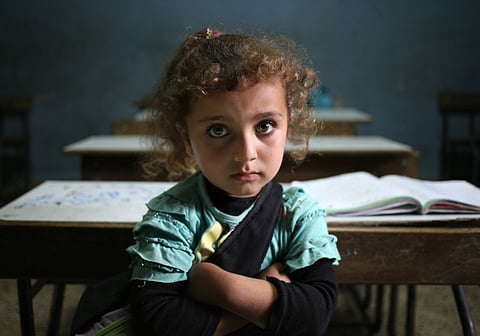50,000 refugee children work in Lebanon
Thursday marks International Day against Child Labour

Beirut: At least 50,000 Syrian refugee children in Lebanon are working, often in dire conditions and for 12 hours a day, to pay for food and shelter for their families, aid organisation CARE said.
More than a million Syrian refugees live in Lebanon, making up a quarter of the country’s population, having fled a civil war in its fourth year, which has left more than 160,000 dead.
Only 50 per cent of Syrian refugee children in the region attend school, and only 30 percent in Lebanon, CARE said.
Children working as street vendors say they are earning less than $5 a day. Others work at coffee shops and markets or on farms and construction sites. Some say they commute for hours on buses into the capital Beirut.
In Jordan, where nearly 600,000 Syrian refugees live, child labour has doubled nationwide to 60,000 since the start of the war, CARE said this week.
The group is giving cash to families in Jordan and Lebanon, which has banned refugee camps, to allow children to attend school rather than work, but funds are insufficient, CARE said.
“The conditions are harsh and safety and security of the children is not guaranteed,” Johanna Mitscherlich, Regional Emergency Communications Coordinator for CARE Jordan, said in an email, noting that housing is inadequate and that families struggle by on one or two meals a day.
“There are also quite a few children who have injuries from the war or who are still traumatised and can therefore neither work nor go to school,” she said.
Thursday marks International Day against Child Labour with about 168 million children working worldwide, down by a third since 2000, according to the International Labour Organisation.
Sign up for the Daily Briefing
Get the latest news and updates straight to your inbox



